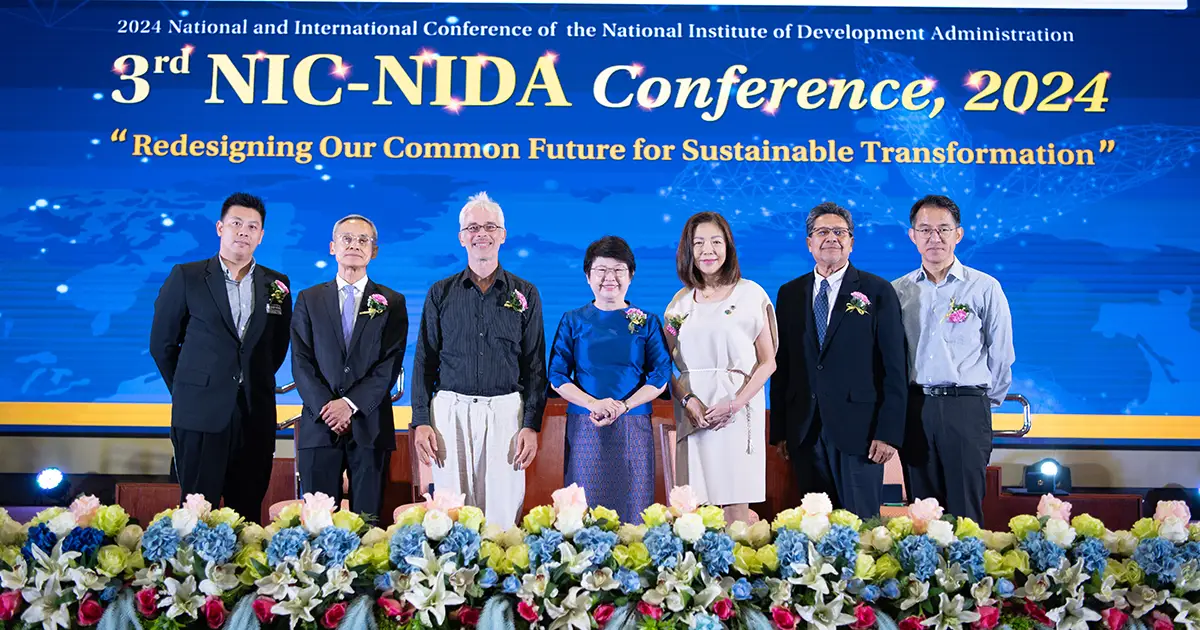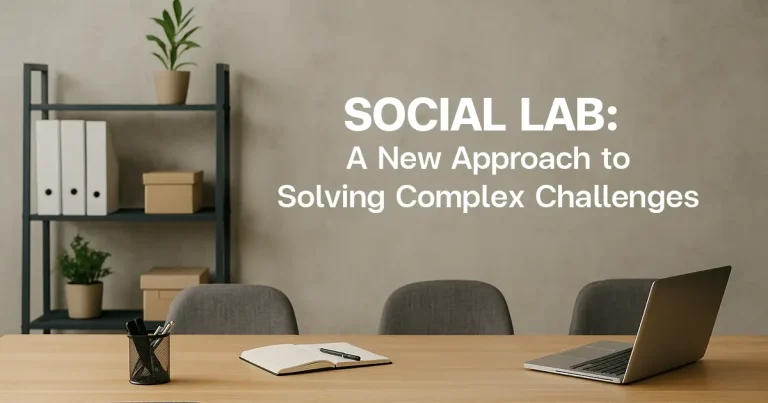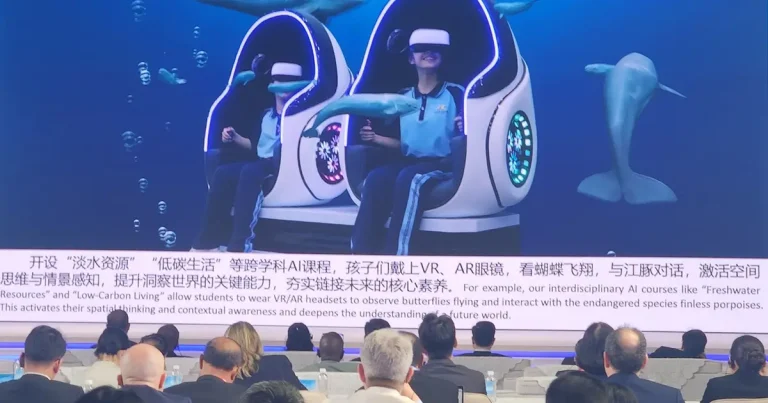Panelists:
1) Emeritus Prof. Vitit Muntarbhorn, Chulalongkorn University, Thailand
2) Prof. Pier Paolo Pasqualoni, Ph.D., University of Innsbruck, Austria
3) Prof. Faiz Shah, M.D., Yunus Center AIT (YCA).
4) Prof. Jacky Fok Loi HONG, Ph.D., University of Macau, China
5) Ms. Choo Leng Goh, The Athenee Hotel Bangkok, Thailand
Panel Chair:
Asst. Prof. Sid Suntrayuth, Ph.D., NIDA, Thailand
Summary by
Asst. Prof. Thitat Chavisschinda, Ph.D.
In this discussion on “Interdisciplinary Pathways for Sustainable Development: Challenges and Solutions,” participants had the opportunity to exchange ideas and insights, drawing from the expertise of a diverse range of professionals. The event, moderated by Assistant Professor Dr. Siti Suntharayut, brought together distinguished speakers who explored various dimensions of sustainable development through interdisciplinary perspectives.
Linking Human Rights with the SDGs
Professor Vitit Muntarbhorn, an Emeritus Professor from the Faculty of Law at Chulalongkorn University, presented the critical role of integrating human rights into the Sustainable Development Goals (SDGs), with a particular focus on SDG 16, which emphasizes peace, justice, and strong institutions. Professor Vitit stressed that sustainable development cannot be achieved without respect for human rights, highlighting the importance of addressing the needs of vulnerable groups such as refugees, children, and stateless people.
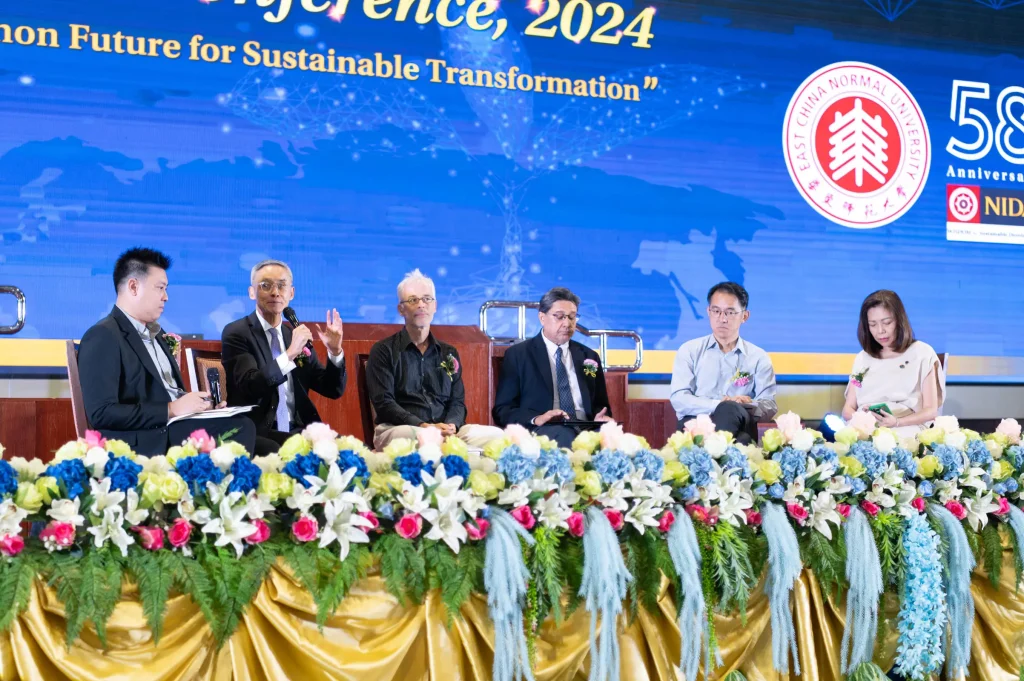
Drawing from his extensive experience working with international organizations such as the United Nations, Professor Vitit shared examples of his work in conflict zones like Syria and Korea. He emphasized that creating a fair and peaceful society requires the integration of human rights into all areas of development, particularly through the recognition of freedom of expression and inclusive participation in decision-making processes.
The Role of Universities in Promoting Sustainable Development
Assistant Professor Pier Paolo Pasquoloni from the University of Innsbruck discussed the vital role of universities in driving sustainable development. He emphasized that universities are not only responsible for generating new knowledge but also for applying this knowledge to create real impact in society. He pointed out that research must address contemporary social issues, from natural sciences to applied sciences, to develop technologies and innovations that promote a sustainable and environmentally friendly society.
Professor Pasquoloni also highlighted the need for universities to provide equal access to education for all, regardless of social background. Universities must expand educational opportunities for those lacking resources, ensuring that everyone has access to quality learning and the ability to improve themselves. Furthermore, he stressed the importance of raising awareness among educators and administrators about the push toward sustainability within academic institutions.
International Cooperation and the Challenges of Achieving SDGs
Professor Faiz Shah from Yunus Thailand shared his insights on the challenges and opportunities in implementing the SDGs. He discussed the complexity of addressing the 17 SDG goals, which are often treated in isolation, leading to disjointed efforts that may not be the most effective approach to achieving global objectives. Professor Shah emphasized the importance of shared responsibility in achieving success, noting that true progress should not be defined by one party’s victory at the expense of another’s failure.
He posed critical questions about how global governance can be improved and how responsibility for sustainable development efforts can be measured. He also underscored the importance of public-private partnerships as a key to success, noting that gaps still exist in collaboration between these sectors and that regulatory frameworks need to be improved to encourage more effective partnerships.
In addition, Professor Shah emphasized the role of innovation and technology in driving sustainable development, particularly the need for increased investment in these areas. He suggested that while the current landscape of innovation is limited, accelerating progress in technology and management practices is essential for achieving meaningful impact.
Building Sustainability Through Multinational Corporations
Professor Jacky Fok Loi Hong from the University of Macau spoke about the role of multinational corporations in advancing sustainability. He highlighted how these companies, with their ability to operate across borders, can act as a bridge between governments, non-profit organizations, and civil society, creating policies that support sustainable development. Knowledge management within multinational corporations, Professor Fok emphasized, plays a crucial role in ensuring that best practices are shared and applied effectively across different regions, helping these organizations adapt and respond to environmental and social challenges efficiently.
He also discussed the importance of efficient knowledge transfer between a company’s branches worldwide, which allows for swift and comprehensive responses to global issues, contributing to both environmental sustainability and economic progress.
Case Study: Sustainability Practices at a Hotel
Ms. Choo Leng Goh, General Manager of The Athenee Hotel in Bangkok, shared her experiences in applying sustainable development principles to the hotel industry. She discussed how the hotel achieved ISO 20121 certification for sustainable event management and promoted the use of organic produce sourced from local farmers, helping to reduce environmental impact and support local communities.
Ms. Goh highlighted the importance of fair pricing for organic farmers and the hotel’s commitment to reducing food waste by converting leftovers into compost, demonstrating efficient and sustainable resource use.
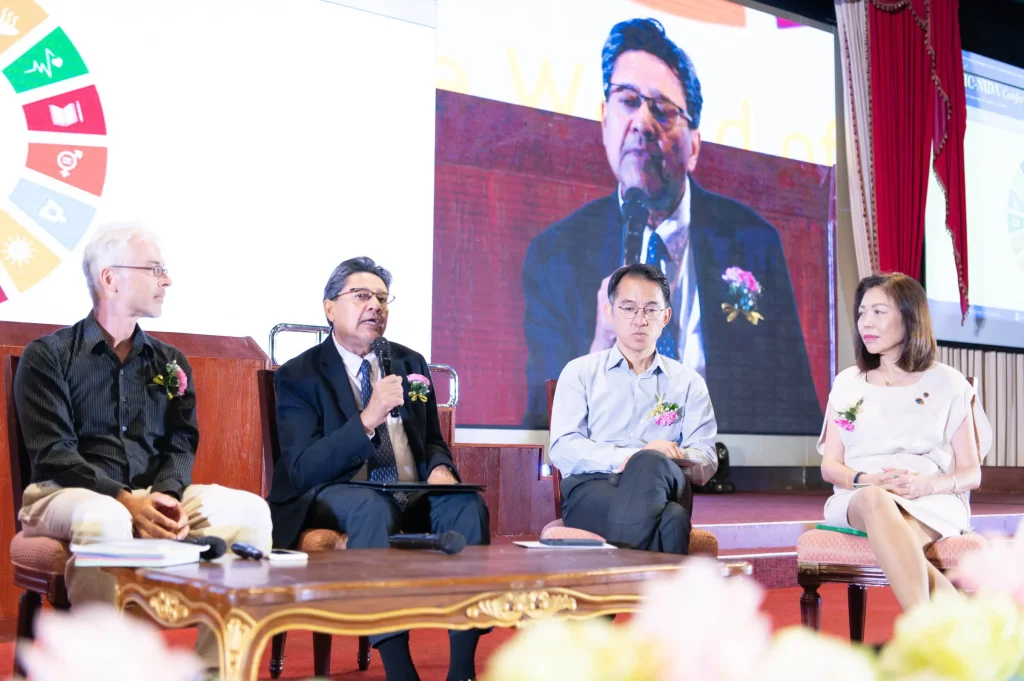
Conclusion and Reflections: The Importance of Integrating Disciplines for Sustainable Development
The discussion on “Interdisciplinary Pathways for Sustainable Development: Challenges and Solutions” provided a comprehensive view of how sustainability can be approached from various perspectives, including human rights, education, business, and resource management. A key takeaway from the session was the realization that sustainable development is a complex process that requires the involvement of all sectors of society. It is not a task that can be accomplished by a single entity; it demands collaborative efforts across disciplines and sectors.
The session emphasized the importance of cross-disciplinary collaboration as a critical tool for driving long-term sustainable change. Knowledge sharing and cooperation between businesses, universities, and various organizations are essential for advancing social and economic development in a fair and balanced way.
The discussions also revealed that sustainability can no longer be viewed as a singular issue. In today’s interconnected world, environmental, social, and economic challenges are deeply intertwined. Therefore, working across disciplines is essential for creating effective, lasting solutions. Moving forward, interdisciplinary approaches will become increasingly important in addressing emerging global challenges such as climate change, social inequality, and economic instability.
The path toward sustainable development requires collaboration from all sectors. Businesses, universities, and local communities must work together systematically, using knowledge from multiple disciplines to build a future that is both responsible and sustainable. Ultimately, sustainable development is a journey that must be taken together, with interdisciplinary approaches serving as the key to achieving a better and more resilient future.

